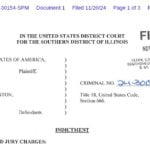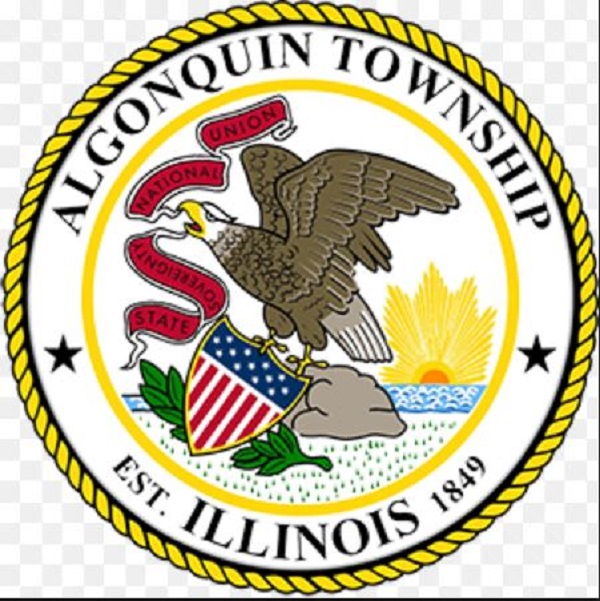McHenry Co. (ECWd) –
While many have gone to great lengths to blame the current Highway Commissioner for the huge legal bills of the Road District after terminating three employees on his first day, it appears knowledge of certain facts raises more questions and some of those answers put things into perspective.
Considering Miller knows of no records in question as covered in this article, what Gasser knew and when should be taken into consideration as it relates to what happened during his first day in office, the termination of three employees.
- When was Gasser made aware of an actual signed Collective Bargaining Agreement?
- Before or after the terminations in question?
- Does it make any difference?
While there was a lot of talk about the Road District unionizing just before Miller left office, no public record was ever produced to support their being any signed agreement in place when Gasser took office. These facts are important to know and keep in perspective as it relates to Gasser’s first day in office.
Just as Miller has sworn under oath to having no knowledge of any record related to collective bargaining, Gasser also had no knowledge of any collective bargaining agreement (CBA), until after the terminations.
If he had no knowledge of, nor was ever provided a copy of, any Collective Bargaining agreement, he would have no concerns over any particular process for terminations found in a CBA. To date, there has not been a single public record produced which reflects there was any vote taken or actual collective bargaining. According to the transcripts from the Local 150 lawsuit, this entire process of Miller unionizing the Road District was done in secret.
If Gasser had no knowledge of that CBA then those employees were at-will employees as far as Gasser was concerned. “I had no knowledge of any CBA until I found a copy of it on the table in the break room, which was after the terminations in question”
This is where I encourage all the anti-Gasser and anti- ECWd folks to take a breath.
If Gasser knew there was an actual signed CBA before terminating anyone then he would be to blame for not following the proper procedures outlined in such an agreement. Without that knowledge prior to those terminations coupled with the fact no CBA had ever been provided by Miller, they were at-will employees in Gasser’s eyes.
Gasser believed he could terminate at-will employees and while some will cry foul and claim this was not true, the paper trail both prior to taking office and those found in the legal battle that ensued say otherwise.
Gasser asked for and was denied copies of records related to the CBA and all the steps that should have taken place prior to any such agreement. It was only after the terminations that the actual signed CBA was ever revealed.
What did Gasser remind Miller of prior to taking office, during Miller’s last meeting as an official and part of the official Township minutes?
“Andrew Gasser, Fox River Grove, read Township Code that related to the delivery of records and papers that pertain to the office for outgoing officers.” (Meeting Minutes)
(60 ILCS 1/55-55)
Sec. 55-55. Delivery of records. It is the duty of every person going out of office, whenever required under Section 55-45 or 55-50, to deliver up, on oath, all the records, books, and papers in his or her possession or in his or her control belonging to that office. The oath may be administered by the officer to whom the delivery is to be made. It shall also be the duty of every supervisor and commissioner of highways going out of office, at the same time, to pay over to his or her successor the balance of moneys remaining in his or her hands as ascertained by the trustees of township accounts.
(Source: P.A. 82-783; 88-62.)
We understand Miller did not provide anything in relation to Gasser’s request. On day one, Gasser comes into work to find computers wiped clean. All requests for records resulted in no records relating to collective bargaining and even though he reminds them of their obligation just days before leaving office, No CBA was ever produced.
Without knowledge of an actual signed agreement, how was Gasser to know he could not terminate what would be at-will employees as far as he was concerned?
The transcripts from one of the hearings reflect the attorney for Local 150 confirms “Commissioner Gasser reputed the collective bargaining agreement almost immediately upon taking office”
Almost immediately upon taking office?
Why “almost immediately” rather than immediately? The fact is, on his first day of taking office, Gasser terminated three employees of which he had no knowledge were protected under a CBA. So for people to claim he violated the CBA by not going through the agreed process we have to ask, how can he have known anything of the kind was violated when he had no knowledge of it?
While after the fact arguments are worthy of discussion, the fact remains, at the time of the terminations Gasser believed, due to lack of any documentation to the contrary, he had the right to terminate what he considered to be at-will employees.
We understand upon discovering an actual signed CBA, many will take the position that at that point he should have followed that process for terminations of employees.
That is where the next questions arise.
- Everyone knows the CBA was being challenged but why?
- Was it proper for Gasser to question the validity of the CBA?
- Upon knowledge of a CBA, why not bring the employees back and go through the process outlined in the CBA?
Stay tuned for Part III which will address those key questions.
.
Our work is funded entirely thru donations and we
ask that you consider donating at the below link.









No Comments
Sorry, the comment form is closed at this time.